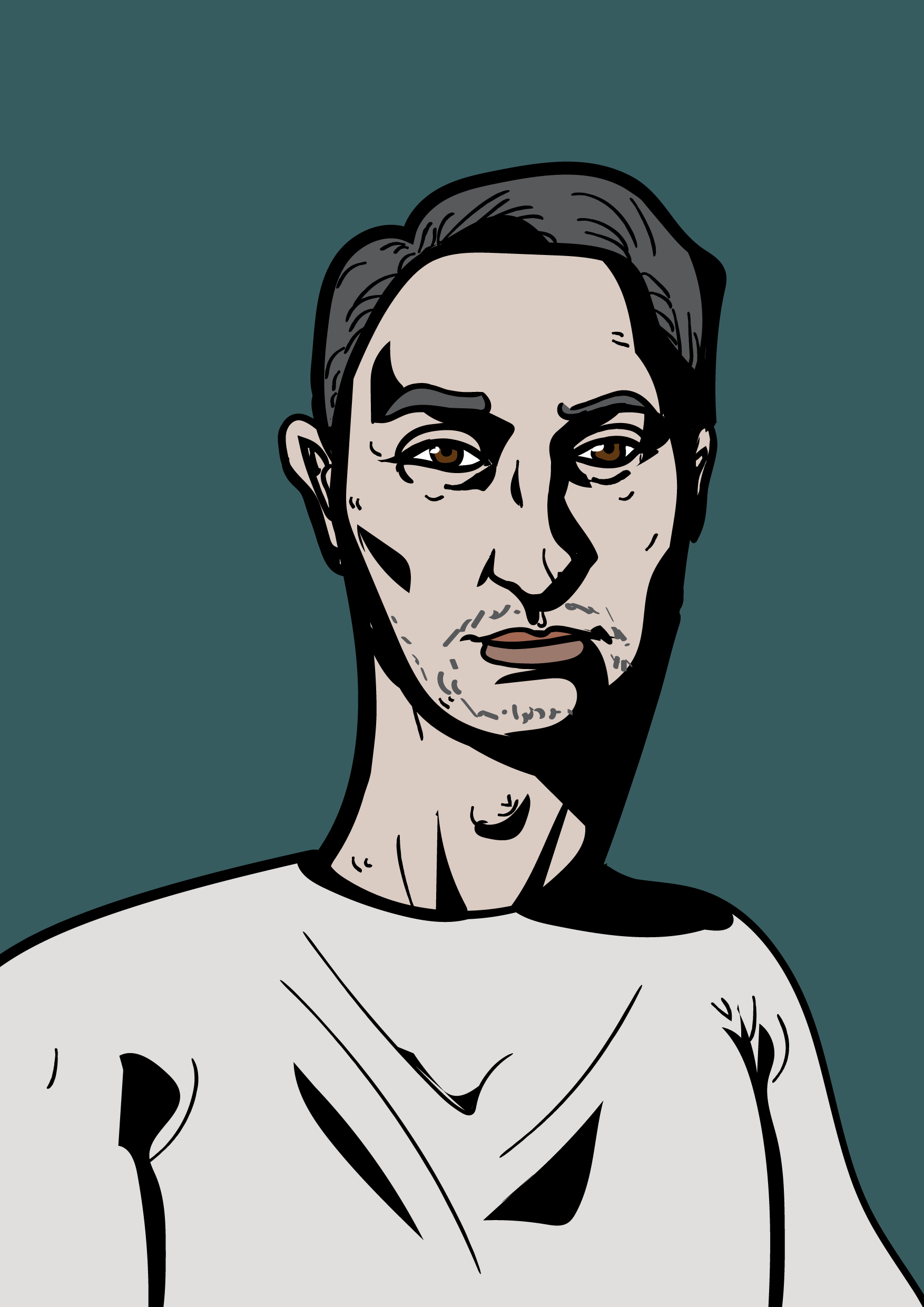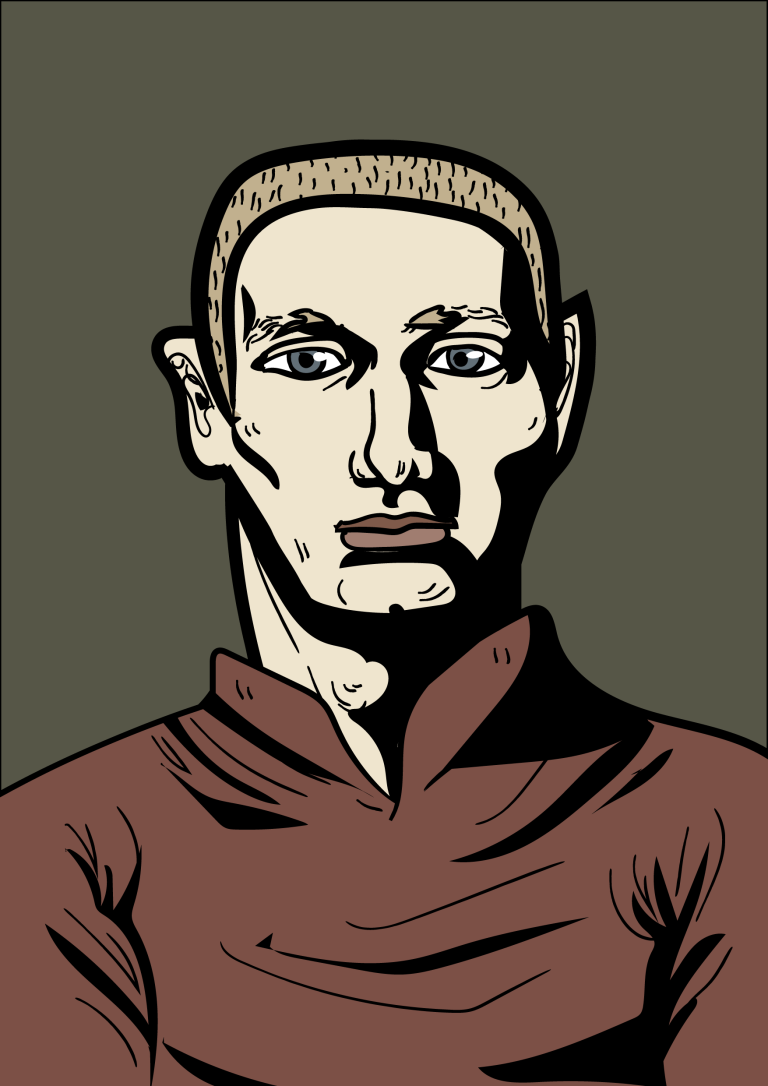
I am 41 years old, I was born in Zhovti Vody, in Dnipropetrovsk region. I’d worked in Dnipro for a long time, and for the last six years I lived and worked in Kherson. My partner and I have our own house near Kherson, but a couple of months ago I was forced to return to my parents’ apartment in Zhovti Vody.
The full scale invasion didn’t catch me off guard. I had watched YouTube all the time, so I understood what it was all coming to. On that day Slavik, my partner, was with his parents, they live in Pryozerne. I woke up at 3 a.m., Chornobayivka was hit, it’s about 15-20 km from our house. And that was it – I immediately understood that this was war. And in the morning Russian helicopters were already flying over us. There was no doubt left…
Slavik didn’t keep track of politics at all, he couldn’t understand how such a thing was possible, and to all my pleas to urgently pack up and go, he answered briefly – “No, my parents are here, how can I leave them?” We sat there wasting time until the railway and bus stations were closed completely. There was still hope that the Russian soldiers wouldn’t cross the Antoniv bridge, but… Then what happened happened.
For a month we lived among total lawlessness, but we knew that everything could change at any moment, and the consequences could be dire. So Slavik and I came up with a story: he is local, lives here, and I am his cousin who came from Kherson, because it is scary there. I did have an ID card, but there was no residence permit. Therefore, this story worked, although we were anxious that the locals might rat us out. They didn’t know for sure that we were a couple, but it was still nerve-racking.
During the occupation, a lot happened. There were raids on pro-Ukrainian people, and Russian soldiers came to us with searches. Slavik regularly had to pass through checkpoints, because his parents were in Pryozerny. There were many things that are scary to recall. Everyone was afraid for their lives. Both LGBT people and heterosexuals. Slavik was once questioned at the roadblock. Like, why are you almost 40 years old and you don’t have children? Slavik didn’t look like a gay man at all, just a lonely villager who rode his bicycle and had a local residence permit, there was really nothing to be suspicious about. But searches at checkpoints were regular. They rummaged through bags, phones, and sometimes forced people to undress.
One night, some young men tried to get into our yard. For some reason, young guys liked to drink with the Russian soldiers, they considered Russians their friends. On the first day, we had argued with those guys for almost an hour, but they had never gotten inside. And on the second night, they came back. But they no longer tried to climb over the fence, they started breaking the gate. I then took the weeder and told Slavik that as soon as they got to our place, we would deal with them. If there were two of them, one was for him, the other was for me and we would do some “weeding out”. But while they are behind the fence we shouldn’t touch them. I don’t know what would have happened if they had climbed in.
It seems to me that after a certain time under occupation, all Kherson residents developed a reflex: if you go out into the streets, keep your eyes down, give the occupiers a wide berth. If the occupiers stop you, immediately take out your passport and open it. We tried to be as inconspicuous as possible to blend in with the landscape. The fewer questions for you they had, the easier it was for you.
I remember that the stench was terrible. Komyshany, Bilozerka – it was impossible to be near them. Because corpses were burned there in the fields. Tyres were thrown at them, diesel fuel was poured over – and that was it. Although all the main battles took place along the Kherson-Mykolaiv highway. Chornobayivka as well. Whereas the Russian soldiers came to us just like tourists on vacation. We didn’t go unscathed regardless: after they moved to the other bank, they started firing at us. So during the occupation everyone suffered, just at different times and in different ways.
When we were liberated, there was neither electricity nor communications. But we were free. About until the middle of December everything was more or less calm and then dense and massive shellings began. When it started, we already knew what was coming and where it would hit. This lasted five months. Naturally, we were on edge. But at least the communications were already online, so we contacted our relatives. My sister was the one who persuaded me to temporarily return to the Dnipropetrovsk region. Slavik didn’t want to go, because he couldn’t leave his parents, his mother is more than 70 years old, she has limited mobility. So we agreed that I would go, and if he could and wanted to, he would take his parents and come to me. If the Russian forces left the left bank as well, I would return to Kherson. And I don’t want to go to any European countries, I see myself only in Ukraine.
Although I cannot say that this is a tolerant country, somehow I personally haven’t been affected by homophobia. I just think that if a person is essentially bad, then others will treat them accordingly, regardless of whether they are gay or not. If you are a good person, you will be treated well.
At the same time, I can’t say that after the victory, the attitude towards LGBT people will immediately improve. A certain number of people with open minds went abroad. A huge number of people went to the front. You can pass laws, you can impose penalties for discrimination. Still, we have to raise a generation that would live their lives according to these laws. But after the victory, we’ll have a lot of other pressing issues. So in my opinion we might be able to address the matters of LGBT people in about ten years. And that’s okay because for now we are all in danger from the Russian forces. Regardless of whether you are gay, bisexual or straight. Victory comes first.



